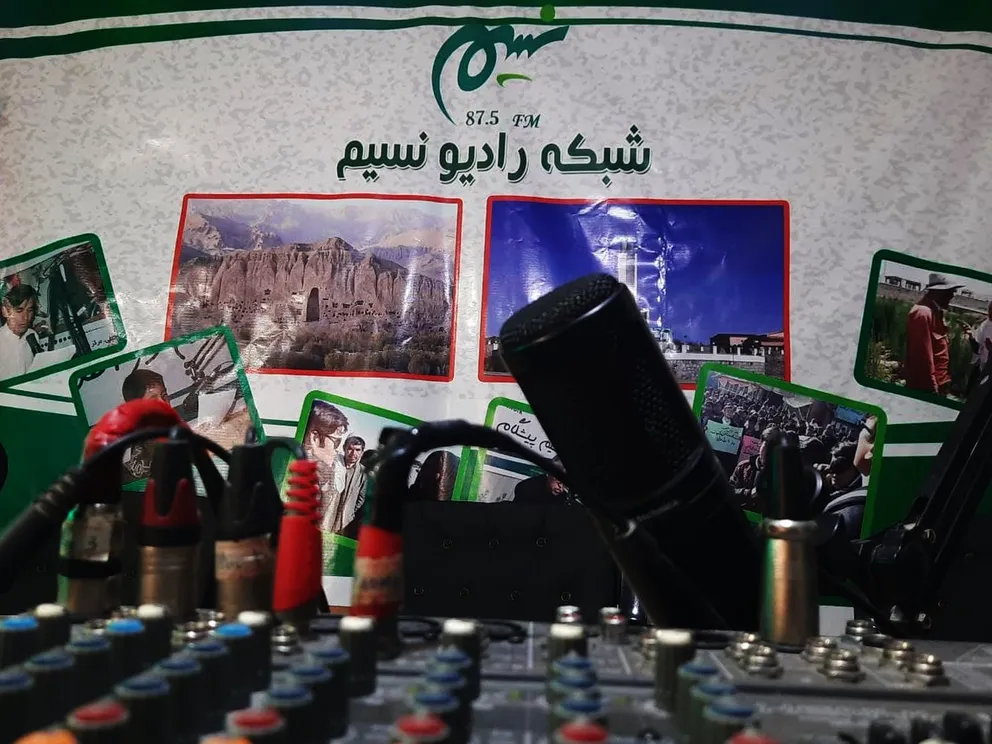Radio Nasim, which had been broadcasting in Daikundi and Bamyan provinces, announced on Monday night, August 11, that it was ending operations after 13 years on air.
While the station did not explicitly state the reasons for its closure, it issued a veiled criticism of the current environment, saying: “Our suspension does not mean the end of our love for this path; rather, it reflects a time that can be too cruel to allow voices to endure.” The statement pledged that the station would resume broadcasting “when conditions improve.”
Describing itself as “a voice that rose from the people, spoke for the people, echoed their pains, and filled their lonely moments,” the station lamented that it was now being lost “in the waves of silence.”
“For thirteen years, we were the voice of hope, kindness, awareness, and life,” the statement read. “From the heart of the mountains, the streets, and the villages of Daikundi and Bamyan, through pain and joy, we were with you. We listened, we spoke, we cried, and we laughed. But today, with hearts full of sorrow, we must say: we can no longer continue.”
Last year, the Taliban shut down the station’s operations and arrested its director and two reporters.
The latest quarterly report of the United Nations Assistance Mission in Afghanistan (UNAMA) describes the worsening media environment as a result of Taliban “repression.” According to the report, Taliban restrictions on media debates have driven down audiences and deterred investment.
UNAMA noted that under these policies, some private outlets have laid off between one-third and half of their staff, while others expect further cuts—or even complete closure.







